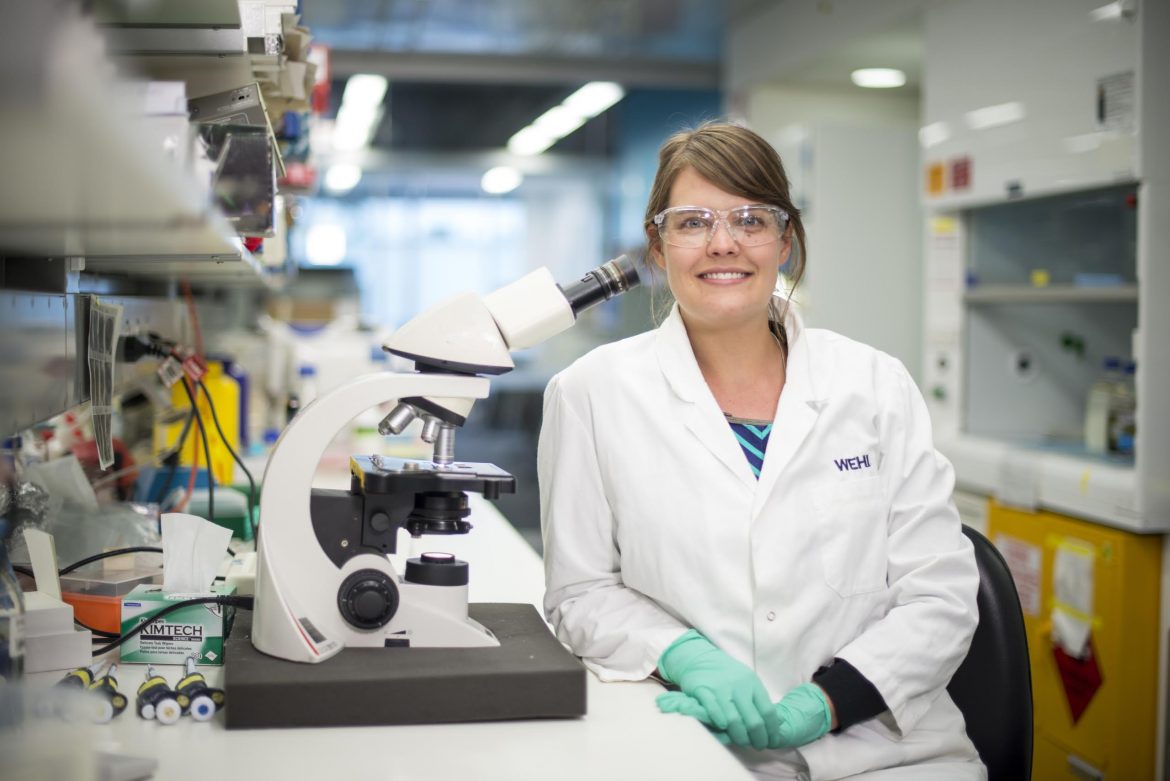“It was through attending NYSF that I was given the advice to choose a Bachelor of Science, and to try out many different science subjects that were on offer.”
As Danika Hill headed off to the National Youth Science Forum in January 2004, she knew she loved science and was enjoying studying chemistry and physics at high school. “I was fascinated by medical research, but was unsure about selecting it as a career because I hadn’t studied biology at school.”

Danika Hill at Walter and Eliza Hall Institute (WEHI)
Attending lab visits during the NYSF to institutions such as the John Curtin School of Medical Research at ANU solidified her decision to pursue a career in medical research. “Many Australian universities offered several types of science degrees such as Laboratory Medicine, Molecular Drug Design, Biomedical Science etc. but I wasn't sure which one was for me. It was through attending NYSF that I was given the advice to choose a Bachelor of Science, and to try out many different science subjects that were on offer.”
In 2005, Danika embarked on a Bachelor of Science through the University of Adelaide. She studied several different subjects from zoology, astronomy, and psychology to political science. However, she found a passion for Genetics and Immunology. In 2008, she went on to complete an Honours Degree in Immunology through the University of Adelaide, studying stem cell development.
“After 4 years of solid undergraduate study, I decided I needed a break before embarking on a PhD. I worked as a research scientist on Regulatory T cells, which are cells that prevent the immune system from causing damage to the body during infection. In 2010 I took a break from science to backpack around Latin America. It was during volunteer work in the Bolivian Rainforest that I met locals who had grown up with malaria. They told of how horrible it was to catch malaria over and over again when they were children. Intriguingly, as adults they were struck down with malaria less often and had developed resistance to the disease.”
On returning to Australia, Danika embarked on a PhD through the University of Melbourne to study malaria at the Walter and Eliza Hall Institute of Medical Research. “My research focuses on trying to understand what the immune system needs to do to defeat malaria. The malaria parasite is very complex and over time, it evolved to avoid detection in the immune system. This is why people living in areas with malaria can catch the parasite numerous times before their bodies are able to fight off the disease. If we can discover what the immune system needs to do to fight off malaria then this will help malaria vaccine development.” Danika travelled to malaria endemic areas of Papua New Guinea and Thailand to conduct research for her PhD.
A career in medical research is truly international. She travels internationally to present her work, and collaborate with scientists from around the world. “It’s fantastic that a PhD in science will be recognised internationally and enables me to seek out research overseas.” Danika will complete her PhD in 2015, and then continue her research into the immune system in Europe.